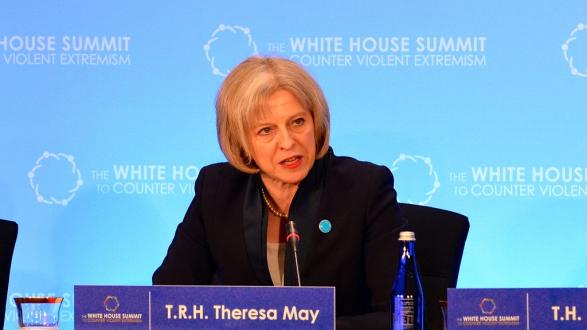In:
Global Beat is your weekly stop for news from around the world. Join us every Friday morning for important stories you should know about.
This week, Theresa May is selected as the United Kingdom’s second female prime minister; renewed fighting erupts in Kashmir; an international court rules against China’s territorial claims to the South China Sea; and more.
____________________
Americas
This week newly elected Peruvian President Pablo Kuczynski announced his plan to combat poverty in Peru, saying, “I want the poverty [rate] no more than 10 percent.” Last year, the rate declined only 1 percent and now stands at 21.8 percent. In 2014, the World Bank reported that 22.7 percent of the Peru’s population lives below the national poverty line. Kuczynski plans to tackle this issue by implementing reforms that seek to alleviate tax pressures on small business owners and to bolster different economic sectors. Additionally, he wants Peru to increase access to water for its rural citizens, a task that could cost up to $9 billion.
Also check out:
- Latin American development depends on investing in teenage girls – Estrella Gutiérrez, Inter Press Service
Central & South Asia
India is witnessing renewed fighting this week in Kashmir, where riots and protests erupted following the killing of a Kashmiri separatist, Burhan Wani, by the Indian government. As of this week, 30 people have been killed. Wani was a member of the separatist group Hizbul Mujahideen. Indian Prime Minister Narendra Modi called for the Pakistani government, under Prime Minister Nawaz Sharif, to “refrain from interfering” in the situation.
Also check out:
China & East Asia
Japan held elections this week and voters granted current Prime Minister Shinzo Abe, member of the Liberal Democratic Party, another term in office. One implication of Abe’s reelection is the Japanese constitution’s possible reformation of Article 9 to allow for military action, which the United States supports and China does not. After World War II, the Article stipulated that pacifism would define Japan’s military position.
Also check out:
- How China is preparing for a decline in the size of its workforce – Clifton Leaf, Fortune
Europe & Russia
British Home Secretary Theresa May of the Conservative Party has been selected as Britain’s new prime minister following David Cameron’s resignation. She is the country’s second female prime minister after Margaret Thatcher. During her tenure, May will be expected to help the United Kingdom make good on its referendum to leave the European Union within two years, which would require invoking Article 50 and beginning negotiations. She stated on Wednesday that she would lead a government “driven not by the interests of a privileged few,” but by the interests of all. Prime Minister May has also appointed former London Mayor Boris Johnson as the nation’s new foreign secretary, surprising many around the world.
Also check out:
- The West escalates with Russia: Make no mistake, a second Cold War is now official NATO policy – Patrick Lawrence, Salon
Middle East & North Africa
Following the Islamic State’s strike on Baghdad this month, U.S. Secretary of Defense Ashton Carter announced a plan of support for Iraqi troops to prevent further IS offensives. The promised aid will include 560 U.S. troops and sharing information on how to detect IED explosives in an area. A truck bomb detonated in Baghdad’s Karada neighborhood on July 3, killing 200 people. Iraq has recently been making progress in taking back cities and land formerly held by ISIL.
Also check out:
- Israel passes NGO bill as opposition warns of 'budding fascism' – Jack Moore, Newsweek
Southeast Asia & Oceania
The Permanent Court of Arbitration at The Hague announced Tuesday that the Philippines had won a case against China, disputing the latter’s claim of legality to the whole of the South China Sea through its nine-dash line policy. While the Philippines celebrated the ruling, China repudiated it, stating it will not let the decision affect its actions and that it will maintain its sovereignty in the region. The White House has asserted that the ruling should be respected and followed by both parties. In recent months, the United States has challenged China’s claim to control of the South China Sea by participating in freedom of navigation exercises, which are legal under the United Nations Convention on the Law of the Sea.
Also check out:
- ISIL has launched a newspaper to recruit Southeast Asian fighters – Yenni Kwok, TIME
Sub-Saharan Africa
South Sudan is undergoing inner turmoil as a civil war begins to brew. The fighting is occurring primarily in the country’s capital of Juba between groups who follow Vice President Riek Machar and those who follow President Salva Kiir Mayardit. NPR reports that “the conflict was fought along political and ethnic lines.” Over 300 people are reported to have died and many more are in grave peril, with thousands more caught in the crossfire. Both Mayardit and Machar have called for a ceasefire but their efforts have failed thus far. The United Nations has also released a statement condemning the violence and listing the ways in which it will take action.
Also check out:
- From basket weavers to salt farmers: the women leading a renewables revolution – Katharine Earley, The Guardian
Stay informed. We’ll see you here again next week.




